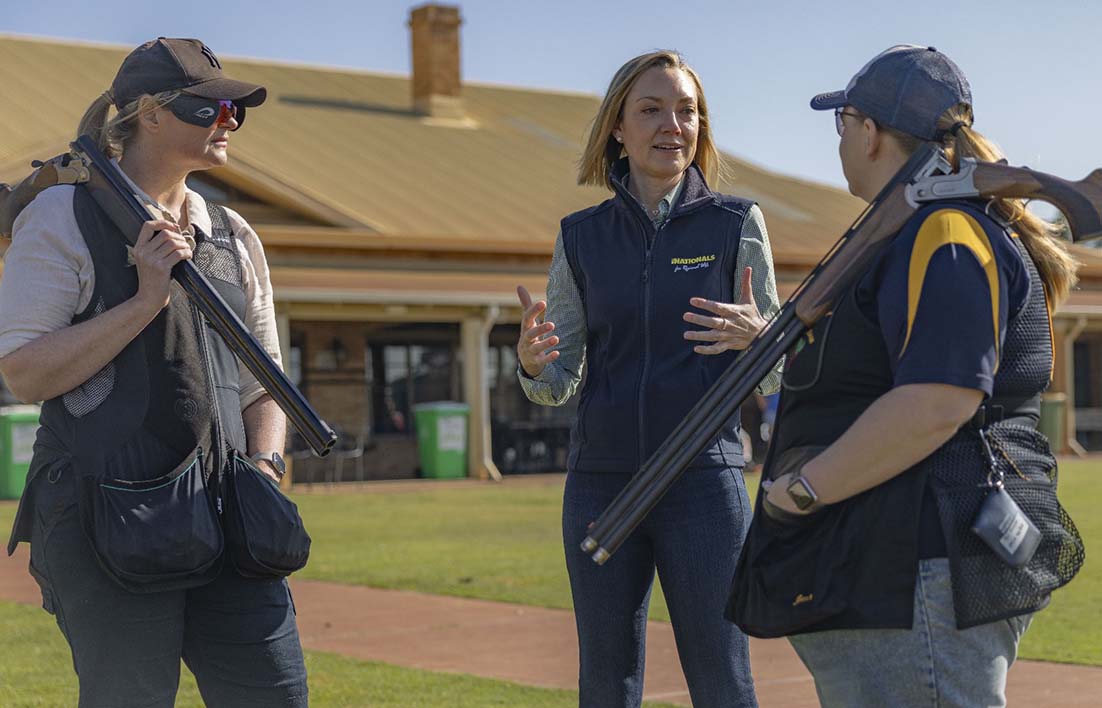
WHITEMAN Park hosted a successful state shooting carnival in the closing weeks of September and is set to host nationals next year, but the future of the sport remains uncertain.
Western Australian Clay Target Association (WACTA) vice-president Murray Cornish said the event was a success.
“It was a new format, and we tried to run it for eight days straight,” he said.
“We ran trap for four days and the other one was skeet for four days.
“It was a good success and (nationals) next year will be bigger and better.”
Mr Cornish said the state carnival was a simulation ahead of the national event to be held in Whiteman Park on April 2 next year, but new gun law changes concerned shooters.
“Every second person I talk to wants to know what’s happening with the gun laws,” he said.
“There’s been a lack of consultancy, the legislation and regulations aren’t complete, and so we’ve been largely left in the dark.
“We’ve tried to suggest things – there’s probably 10 different ballistics sports involved and each ballistics sports’ presidents goes to the meetings with police and the law reform commission but they’ve told us what they’ll do without much consulting.
“There’s a lot of concerned people and having to deal with the new laws is going to have a big impact on our sport.”
Mr Cornish said the main concern were the gun limits which he was worried will affect the competitive shooting due to different formats requiring different guns.
“How did they come up with limits?” he said.
“There are many different formats such as down-the-line, skeet, International Shooting, Sport Federation shooting, sporting, and you can’t use the same firearm for everything.
“The biggest thing is the numerical limit.
“In the law reform commission from 2016, one of the recommendations was that numerical limits don’t have anything to do with public safety.
“They’ve ignored that right through even though that was the 2016 recommendation.”
Nationals Central Wheatbelt MLA and Bullwinkel candidate Mia Davies said law-abiding firearms owners have raised with her serious concerns about the new firearms laws.
“Competitive shooters, like members of the WACTA, are particularly worried about restrictions on the number of firearms they can own,” she said.
“Many top-tier shooters who compete at state and national levels rely on more than five firearms to participate across various disciplines.
“Under (the) new laws, they’ll be forced to surrender some of their firearms, limiting their ability to compete and potentially causing a decline in membership, which could put the future of some clubs and events at risk.
“There’s also growing frustration about the lack of clarity on how these laws will be implemented, with regulations still not released, despite the laws coming into effect in early 2025.”
Mr Cornish said not much could be done until the regulation came out, but he didn’t think shooters would readily accept the changes.
“We’ll do what we need to save our sport,” he said.
“The average shooter who goes to shoot at a range, are not the problem in society but we’re targeted like criminals.
“The biggest thing the Western Australian Firearms Community Alliance did was the petition.”
The petition Mr Cornish referred to was signed by more than 32,000 people opposing the Firearms Bill 2024.
Mr Cornish said he felt the petition was ignored and competitive shooters were at a loss.
“You can’t do anything in the courts until you know what the laws are,” he said.
“Well, that was the highest petition put into Parliament and they took no notice and decided it wasn’t relevant and they weren’t interested.
“From here competitive shooters will have to keep the pressure going and let it be known that we’re not in support of the changes, and come the election in March, we can try to reverse some of this.
“It’s the only option we’ve got at the moment.”